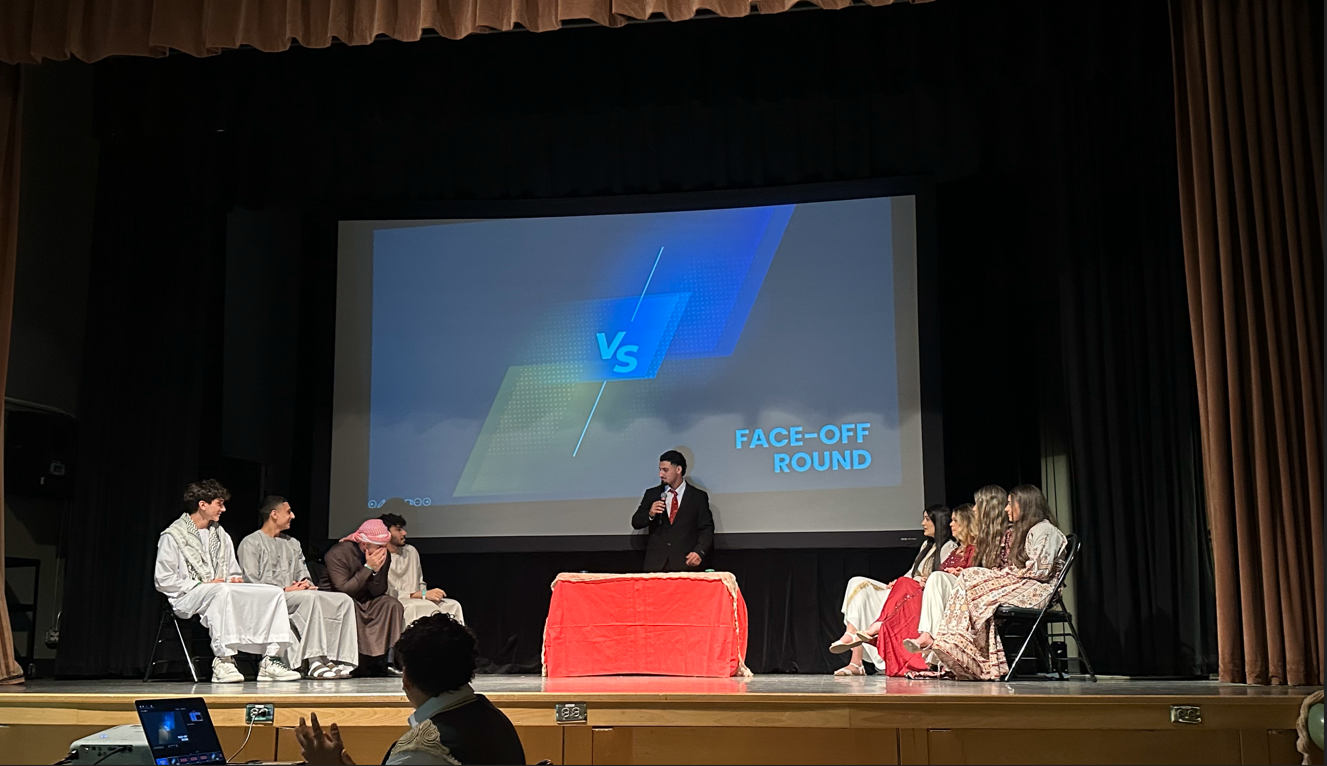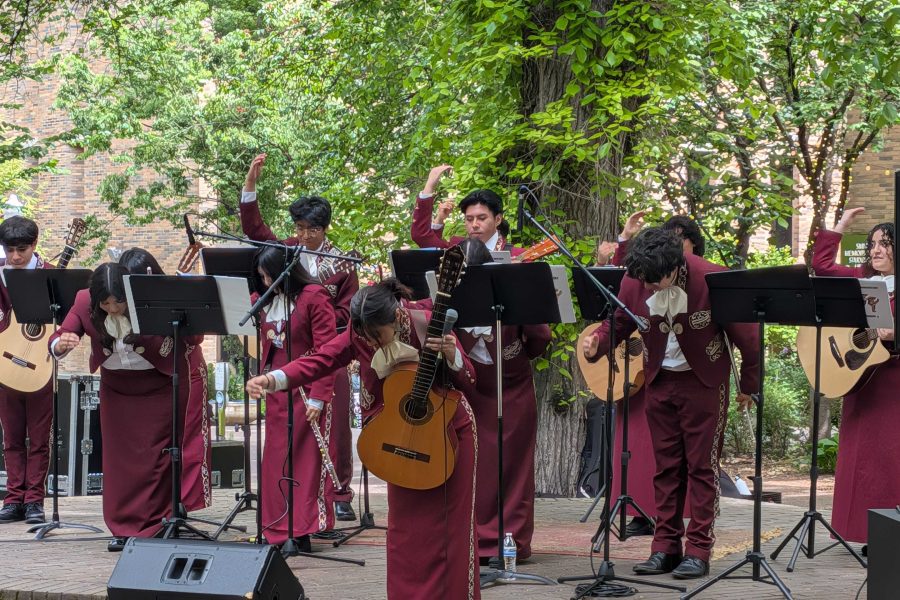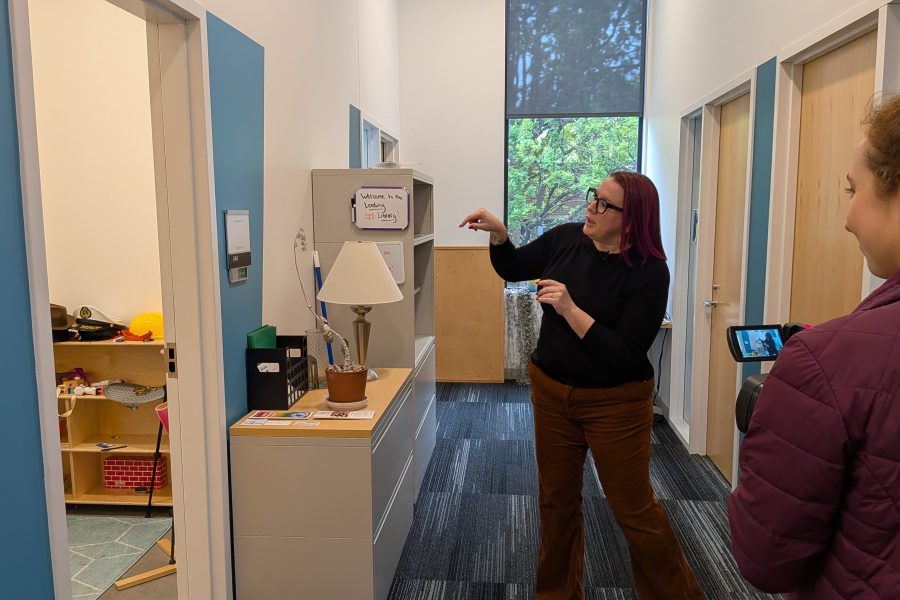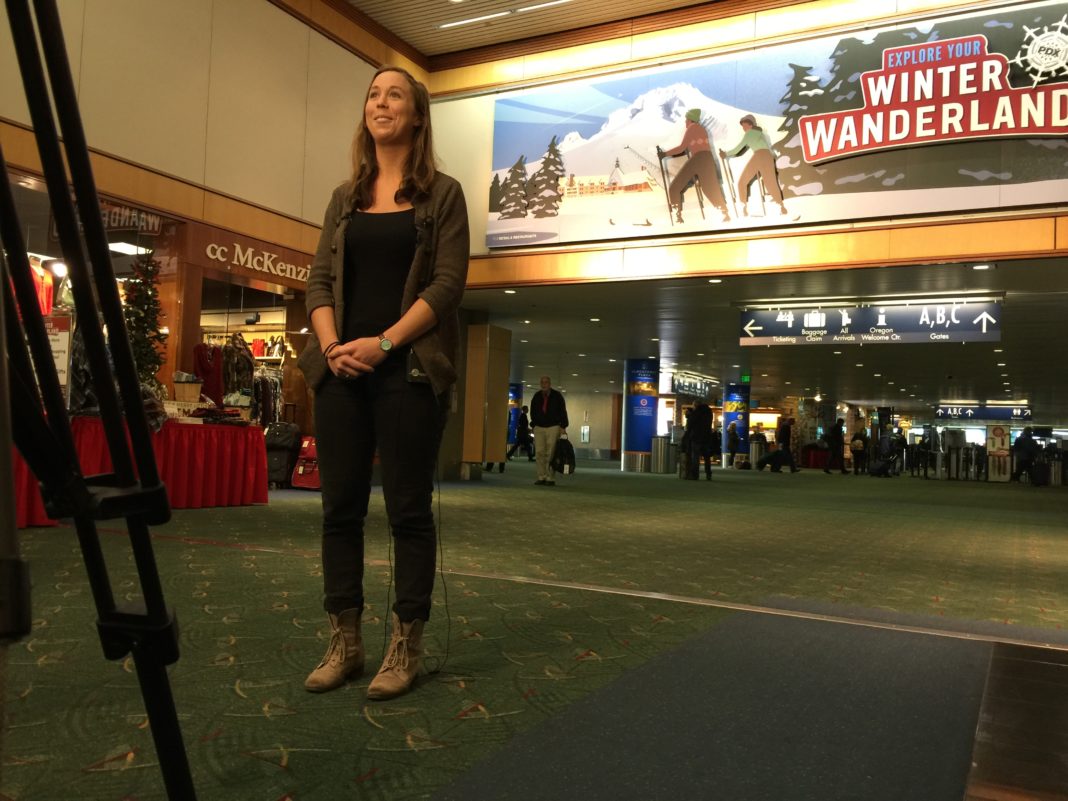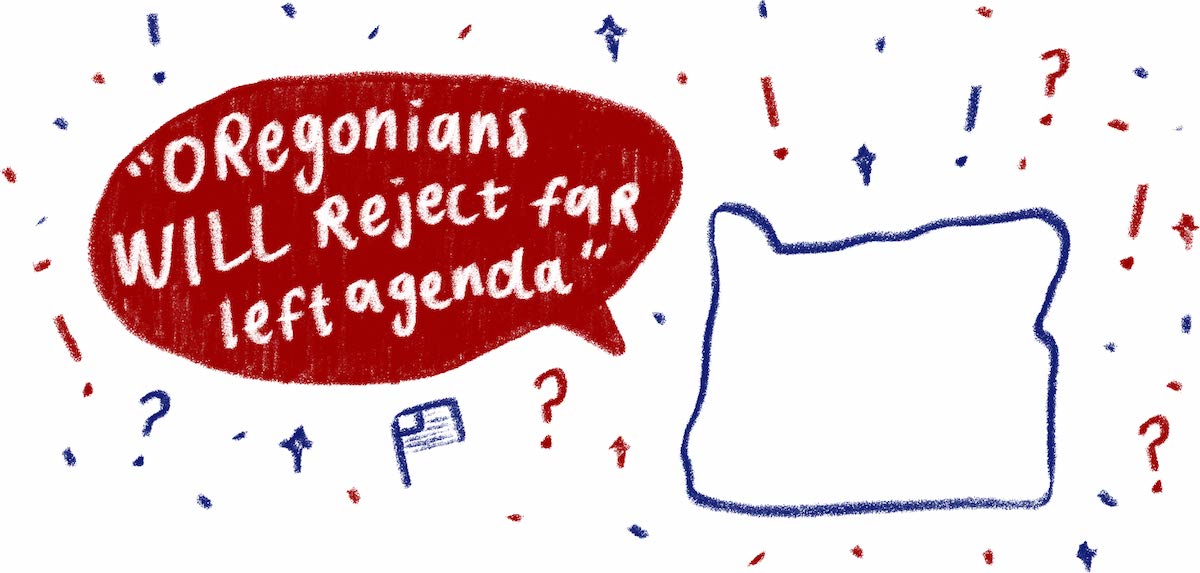Portland State has been lost in a trance of another Arabian Night… minus Will Smith.
On the night of May 10 in Smith Memorial Student Center’s Ballroom, the Arab Student Association (ASA) collaborated with Associated Students of Portland State University (ASPSU), Middle Eastern, North African, South Asian (MENASA) Student Center and Iraqi Student Association (ISA), for its annual Arabian Nights event.
This event was advertised as a special night with drinks, henna, Dabke and a space to celebrate and dress in cultural clothing with friends and community members.
ASA’s Vice President Malak ElManhawy is a PSU student from Egypt who played a crucial role in planning and carrying out the event.
“We started off with ordering decor and things for the tables, we wanted to go with a green Arab theme,” explained ElManhawy. “We have a bunch of fun stuff planned. We have a good lecture coming up, a musician comes to sing; who is one of MENASA’s leaders, […] we also have Dabke at the end for a nice Palestinian dance. I think Dabke is the best part because we end the night with a bang. We have a full team coming, and everyone gets up and dances and it’s always a good time so it’s always a good way to end the event.”
Dabke is a traditional Levantine dance where participants are in a line and often hold hands while aligning shoulders and moving together to Arabic music. The dance is a symbol that represents Palestinian culture, unity, resistance and is often performed during events, weddings and celebrations.
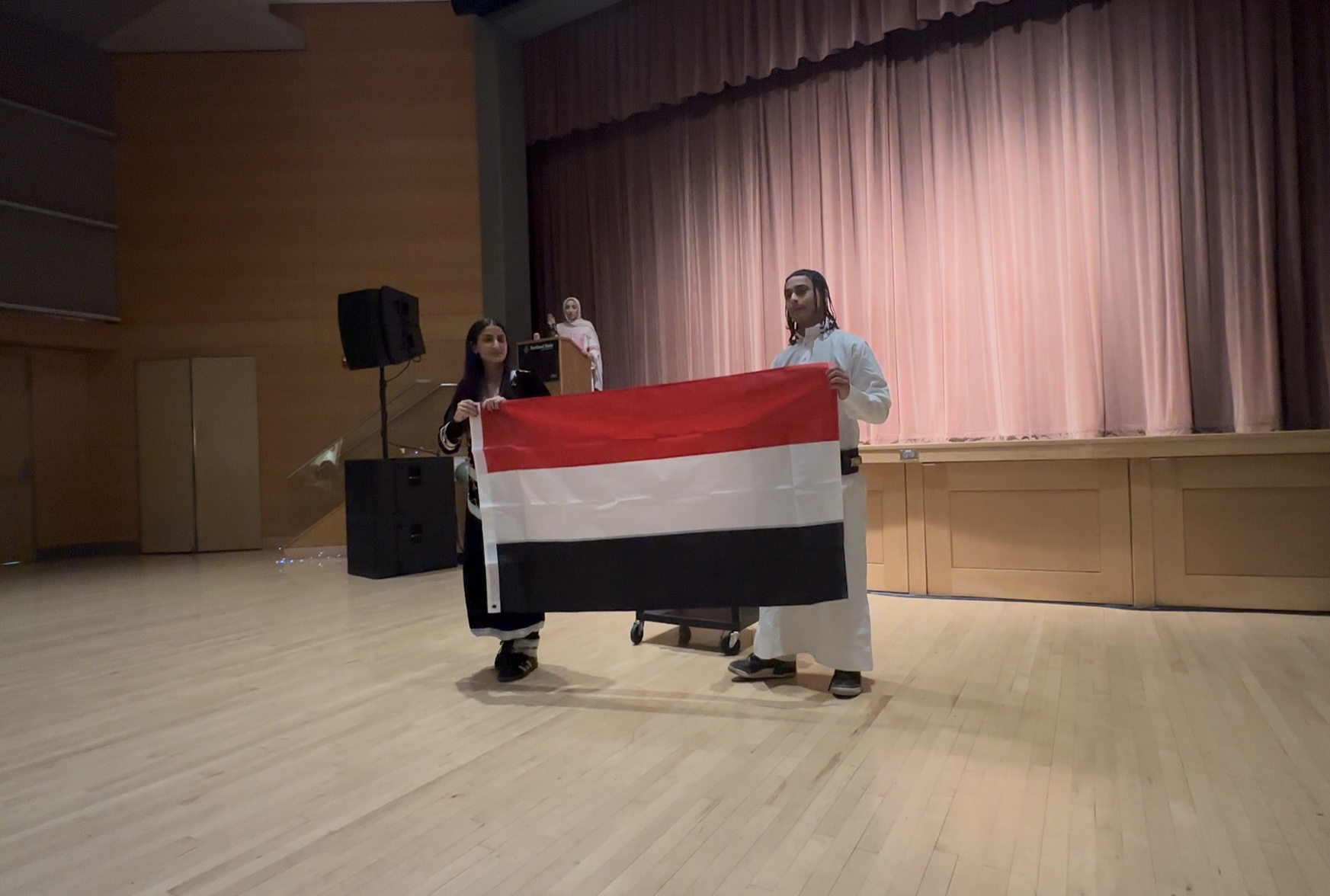
Abdulkader Tayba is a Lebanese PSU Student and the Outreach Chair for ASA, where his main role is to reach out to other clubs and organizations to help with events and finances.
“I’ve been going [to the Arabian Nights event] ever since I was a kid, it’s basically an opportunity for us to showcase Middle Eastern culture at Portland State with food, music and a variety of fun events,” Tayba said. “ASA means a lot—it’s more of a representation thing than anything else, I feel like within the last few years we’ve gotten more Arabs than we have in the past. I feel like if we go back a decade, [Arabs] were a very big minority over here […] so it’s about representing the culture and making people more aware of it.”
Tayba played the role of Steve Harvey in Family Feud, and coordinated the two teams of four in competing against each other in Arab trivia.
“[Planning] was a little stressful but it was really fun, I always looked forward to this event since I was a kid, it used to be for going to it, but this year it’s for planning it, and I feel like overall it felt rewarding,” Tayba said.
Aside from the group Dabke, the cultural walk was the most popular section of the event—with the most cheers and audience engagement. Two people walked for Arab countries like Yemen, Palestine, Libya and more while they held up their flag as the crowd clapped.
Hanae Ejjamri, a Moroccan PSU Student pursuing a degree in Preclinical Public Health, currently serves as Event Coordinator, where she plays the role of one of the lead creative minds in organizing ASA’s regular events.
“[Arabian Night] takes much longer than all our other events—we already have it pre-planned because it’s an ongoing event that happens yearly, so a lot of it isn’t creative planning and is more of monetary planning,” Ejjamri said. “We have to figure out where the money is going to come from, and where it’s going to go, and also plan food and food costs—a lot of it is planning logistics.”
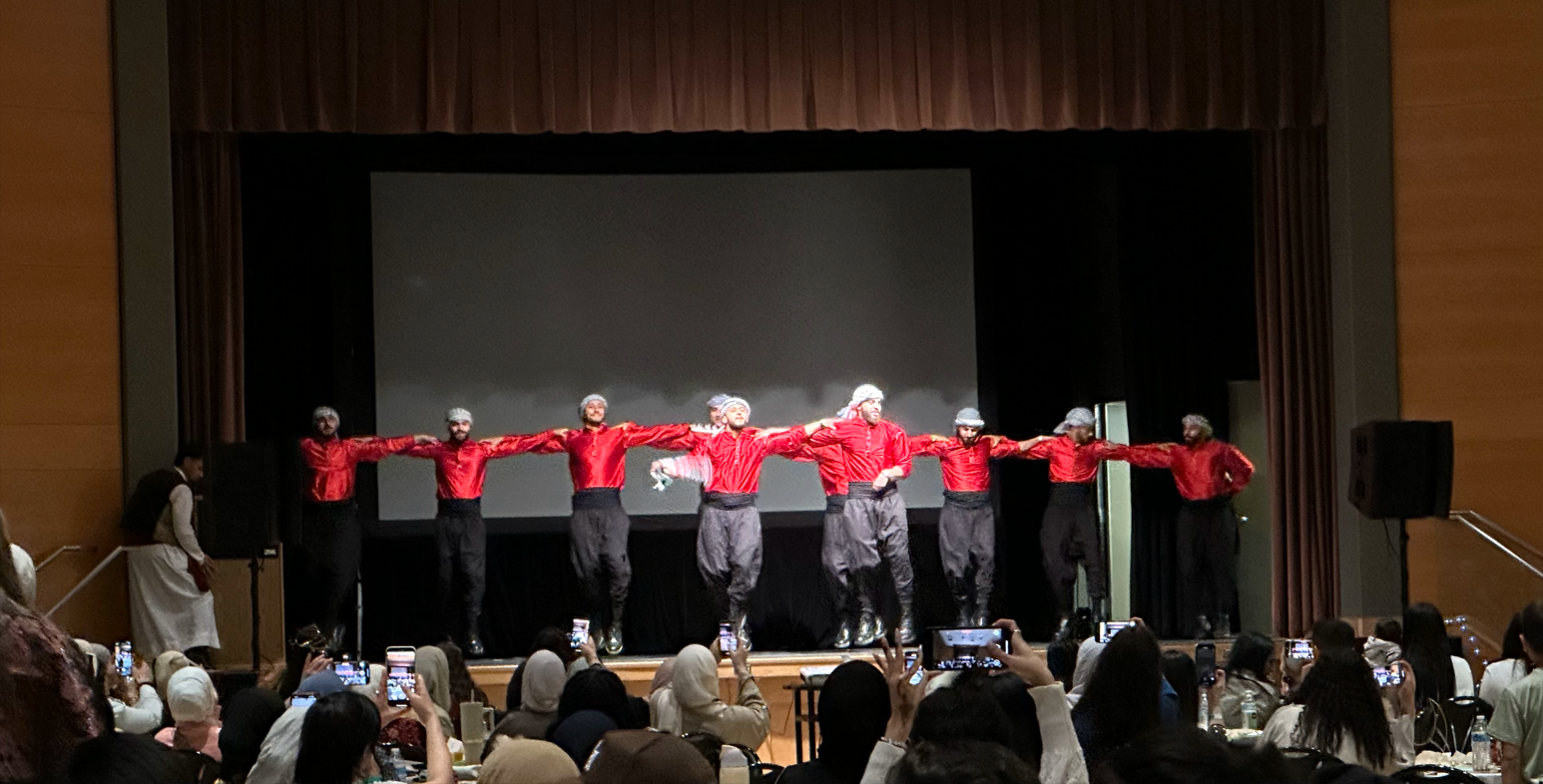
ASA has proudly planned and organized the annual Arabian Nights for the past seven years. This event is not only this student group’s most anticipated event, but also the largest and gathers the most community members around Portland. It serves as a powerful showcase of Arab heritage, joy, cultural pride and is overall a space where students and community members can come together and enjoy themselves.
“My favorite part is the fashion walk where all the cultures get to represent their flags and clothing… and my favorite country is Morocco, hello?” Ejjamri said. “We have a relatively small Arab community in Oregon overall, and most of the people who are Arab are around the Portland area. Being part of ASA allows the community to come together and celebrate our culture in a place where it otherwise wouldn’t be celebrated because there aren’t many Arabs.”

